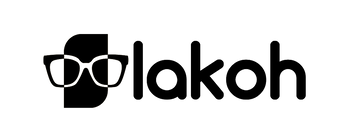Are Blue Light Glasses Actually Helpful?
In recent years, blue light glasses have become a popular accessory, especially among those who spend long hours in front of screens. These glasses are designed to filter out blue light emitted by digital devices like smartphones, computers, and TVs. But do they really work? Are they worth the investment? In this blog, we'll dive into what blue light glasses are, the claims made about them, and what science has to say about their effectiveness.
Understanding Blue Light
Before we delve into the effectiveness of blue light glasses, it's important to understand what blue light is. Blue light is a type of high-energy visible (HEV) light that has a short wavelength and produces a higher amount of energy. While the sun is the main source of blue light, digital screens, LED lighting, and fluorescent lights also emit significant amounts.
The Claims About Blue Light Glasses
Reducing Eye Strain: One of the primary reasons people use blue light glasses is to reduce eye strain. Staring at screens for long periods can cause discomfort, headaches, and dry eyes. Blue light glasses are marketed as a solution to alleviate these symptoms.
Improving Sleep: Exposure to blue light, especially before bedtime, can interfere with the production of melatonin, the hormone that regulates sleep. Many people use blue light glasses in the evening to help maintain their natural sleep-wake cycle and improve sleep quality.
Preventing Eye Damage: There are claims that prolonged exposure to blue light can cause long-term damage to the eyes, potentially leading to conditions like macular degeneration. Blue light glasses are touted as a preventive measure to protect eye health.
What Does Science Say?
Research on Eye Strain: The research on blue light glasses and eye strain is mixed. Some studies suggest that these glasses can reduce digital eye strain, but the evidence is not conclusive. Eye strain can be caused by many factors, including screen brightness, poor posture, and insufficient blinking, so it's unclear how much blue light alone contributes to the problem.
Studies on Sleep Improvement: There is stronger evidence supporting the use of blue light glasses for improving sleep. Several studies have shown that wearing blue light-blocking glasses in the evening can increase melatonin production and improve sleep quality. This is particularly beneficial for people who use screens before bed.
Evidence on Eye Health: The long-term effects of blue light on eye health are still being studied. While some research suggests that blue light exposure may contribute to retinal damage, there is not enough evidence to make definitive conclusions. Blue light glasses might offer some protection, but more research is needed to confirm their effectiveness in preventing eye damage.
Who Might Benefit from Blue Light Glasses?
Frequent Screen Users: If you spend a lot of time in front of screens, blue light glasses might help reduce eye strain and improve comfort. This is especially true for people who work in front of computers all day.
People with Sleep Issues: If you have trouble falling asleep or staying asleep, blue light glasses could be beneficial. Wearing them in the evening can help regulate your sleep cycle by reducing the amount of blue light that reaches your eyes.
Individuals Sensitive to Light: Some people are more sensitive to light than others. If you're one of them, blue light glasses might help reduce discomfort caused by bright screens and artificial lighting.
Choosing the Right Blue Light Glasses
Lens Types and Coatings: When choosing blue light glasses, look for lenses that specifically mention blue light blocking. Some lenses come with additional coatings that reduce glare and improve clarity.
Prescription vs. Non-Prescription: Blue light glasses are available in both prescription and non-prescription forms. If you already wear glasses, you can get blue light filtering lenses with your prescription. Non-prescription options are available for those who don't need corrective lenses.
Alternatives to Blue Light Glasses
Screen Time Management: One of the simplest ways to reduce blue light exposure is to limit screen time, especially before bed. Take regular breaks from screens throughout the day to give your eyes a rest.
Software Solutions: There are various software solutions available that reduce blue light emission from screens. Apps like f.lux and built-in features on smartphones and computers can adjust the color temperature of your screen based on the time of day.
Good Lighting Practices: Ensure that your workspace is well-lit to reduce eye strain. Position your screen to minimize glare and reflections. Consider using warm-colored lighting in the evening to create a more relaxing environment.
Conclusion
So, are blue light glasses worth it? The answer depends on your individual needs and habits. If you spend a lot of time in front of screens, struggle with sleep, or are sensitive to light, blue light glasses might offer some benefits. However, they are not a cure-all. Managing screen time, using software solutions, and maintaining good lighting practices are also important steps to protect your eyes and improve your well-being.







